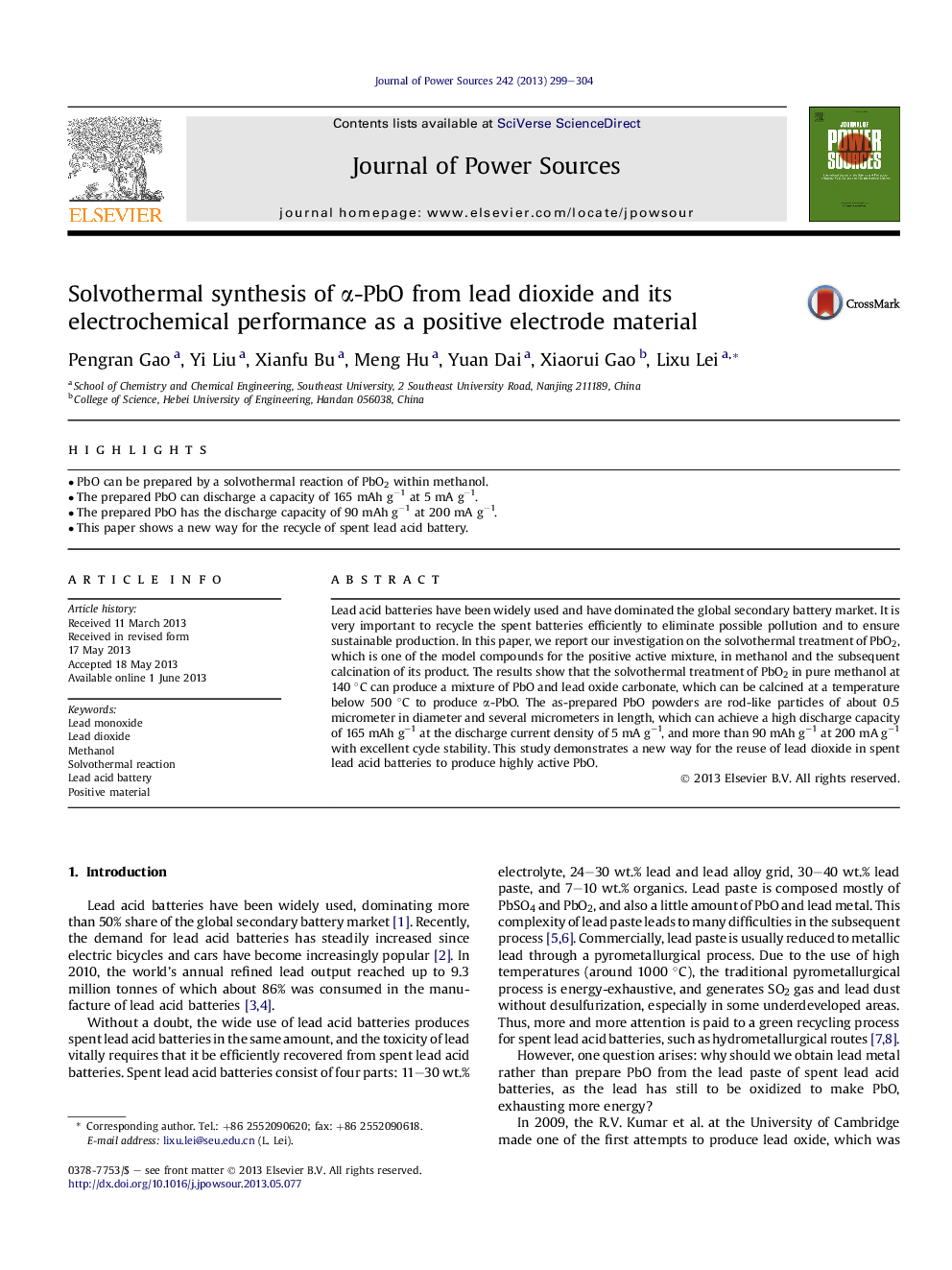| Article ID | Journal | Published Year | Pages | File Type |
|---|---|---|---|---|
| 7740803 | Journal of Power Sources | 2013 | 6 Pages |
Abstract
Lead acid batteries have been widely used and have dominated the global secondary battery market. It is very important to recycle the spent batteries efficiently to eliminate possible pollution and to ensure sustainable production. In this paper, we report our investigation on the solvothermal treatment of PbO2, which is one of the model compounds for the positive active mixture, in methanol and the subsequent calcination of its product. The results show that the solvothermal treatment of PbO2 in pure methanol at 140 °C can produce a mixture of PbO and lead oxide carbonate, which can be calcined at a temperature below 500 °C to produce α-PbO. The as-prepared PbO powders are rod-like particles of about 0.5 micrometer in diameter and several micrometers in length, which can achieve a high discharge capacity of 165 mAh gâ1 at the discharge current density of 5 mA gâ1, and more than 90 mAh gâ1 at 200 mA gâ1 with excellent cycle stability. This study demonstrates a new way for the reuse of lead dioxide in spent lead acid batteries to produce highly active PbO.
Related Topics
Physical Sciences and Engineering
Chemistry
Electrochemistry
Authors
Pengran Gao, Yi Liu, Xianfu Bu, Meng Hu, Yuan Dai, Xiaorui Gao, Lixu Lei,
